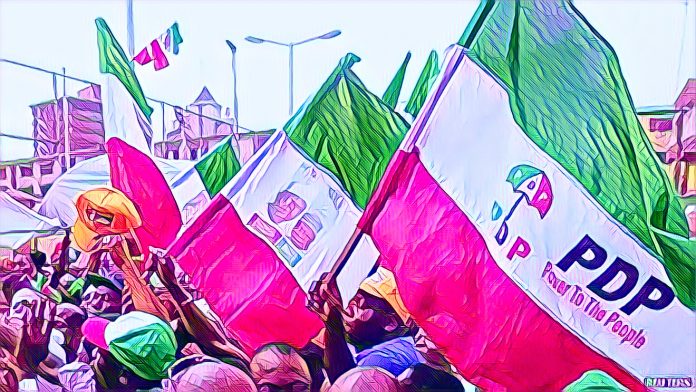The political situation in Nigeria’s Southeast region is experiencing a significant shift. This is mainly due to a number of high-profile defections from the People’s Democratic Party (PDP) to other political platforms, particularly the All Progressives Congress (APC). This move is causing serious concerns about the future of the PDP in this crucial geopolitical zone, which has traditionally been a stronghold for the party.
Emeka Ihedioha, a former governor of Imo State and a long-term member of the PDP since 1998, recently resigned from the party in what marks a critical turning point. In a letter dated April 23, 2024, Ihedioha cited deep frustration with the party’s current trajectory and its inability to serve as an effective opposition to the ruling APC. His departure was not an isolated event, however, as it was followed by the departure of 25 other prominent party members, indicating a broader crisis within the party.
This mass resignation phenomenon, dubbed “Operation Follow Your Leader,” highlights the internal dissensions and power struggles that have plagued the PDP, particularly in the wake of the party’s loss of national power in 2015 after a 16-year tenure. The internal discord has been exacerbated by leadership challenges, conflicting interests, and a perceived detachment from grassroots concerns.
The defections began to gain momentum following strategic disagreements and leadership battles within the party. The crux of the issue lay in the emergence of Senator Samuel Anyanwu as the national secretary of the PDP. His ascendancy created a rift with Ihedioha, who had harbored gubernatorial ambitions and perceived Anyanwu’s rise as a direct threat to his political influence. The conflict reached its zenith during the party’s gubernatorial primary in April last year, which Anyanwu won, further alienating Ihedioha and his faction within the party.
The defections are not merely about personal grievances but also reflect a broader dissatisfaction with the party’s direction. Many members feel that the PDP has failed to effectively challenge the APC’s policies or present a coherent and compelling alternative to the electorate. This perceived ineffectiveness has led to disillusionment among the party’s ranks, prompting many to seek new political homes where they feel their political aspirations and ideologies can be better realized.
The impact of these defections extends beyond the individuals leaving the party. Each departure erodes the PDP’s organizational strength and electoral viability in the Southeast, a region critical to the party’s national strategy. The loss of such high-profile members also dampens morale among the party’s base, potentially leading to a decrease in voter turnout and grassroots support, which are vital for any political party’s success.
Furthermore, the defections exacerbate the challenge of political instability in the region, complicating the party’s efforts to present a united front in upcoming elections. The APC has capitalized on these defections, using them to bolster its presence and influence in the Southeast, thereby reshaping the political landscape in its favor.
The ongoing leadership disputes, particularly over the national secretary position, underscore the deep-seated divisions within the PDP. This internal strife not only hampers the party’s operational efficiency but also detracts from its ability to formulate and communicate effective policy positions. The legal battles over leadership roles, while providing dramatic headlines, do little to address the underlying issues of governance and policy that are critical to winning the trust and support of the electorate.
As the PDP struggles to navigate these turbulent waters, it faces the daunting task of rebuilding and redefining itself. The party must address its internal governance issues, engage more effectively with its grassroots supporters, and articulate a clear and compelling vision that resonates with the broader public. Without significant changes, the PDP risks continued decline, potentially diminishing its role in Nigeria’s political arena and leaving the field open for more dynamic and unified competitors.
The PDP’s predicament in the Southeast is emblematic of larger challenges facing the party nationally. To reverse its fortunes, the PDP must undertake substantial reforms that prioritize internal democracy, policy coherence, and genuine engagement with the electorate. Only by resolving its internal conflicts and presenting a viable alternative to the APC can the PDP hope to regain its former strength and play a decisive role in shaping Nigeria’s future.



